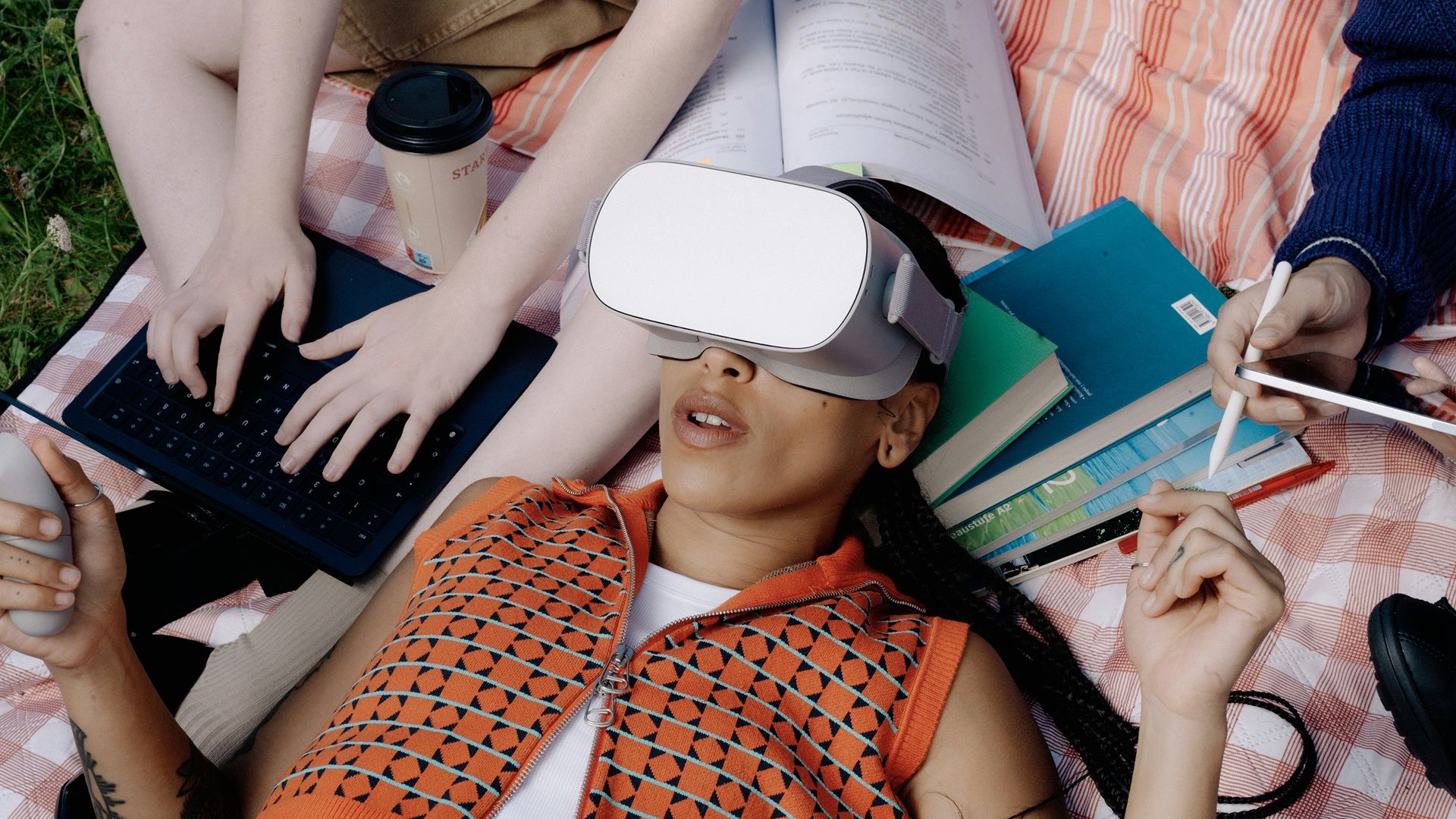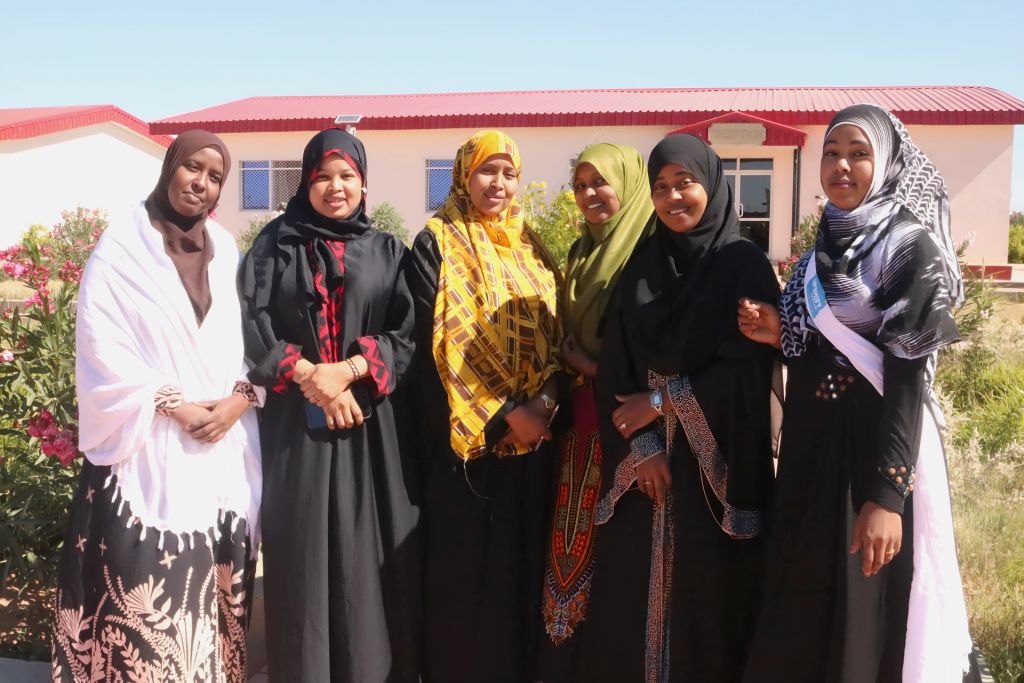The future of education
The future of education
↗ Innovation

It is urgent to respond to the needs of children and young people, to create safe environments where they can participate, and to equip them with the tools to face future challenges. Demographic data places them at the bottom in terms of population weight, and as a result, they have less influence in collective decision-making. Excluding them from shaping the solutions of the future means denying them the opportunity to decide how they want to live. They need to play a role in shaping the future without prejudice, to explore and build a shared, curious vision of what could be.
At dot. we have been working for years on disruptive educational environments with various institutions and universities (Mondragon Team Academy, Basque Culinary Center, Barcelona Activa, Innovasturias, University of Salamanca, Universidad Francisco de Vitoria in Madrid, UNICEF, International Labour Organization…), developing the skills we believe are essential for future generations. Given the current pandemic and the significant challenges we face, we want to share what we consider to be the key foundations for designing impactful learning experiences.
The pandemic has widened the inequality gap in a pressing way and has brought to light new inequalities. By transferring training to the home, the success of learning is even more conditioned by socio-cultural factors: good internet access, people to help you in the learning process or a suitable environment, among others. According to a study by We are Social and Hootsuite, only 59% of the world's population has access to the Internet. Structural barriers play an (even more) important role in the learner's own cognitive development. China, for example, was able to adapt quickly in the midst of the pandemic, as the state television began to broadcast classes on television, divided into different educational levels. In addition, an online training platform was created for all students in the country with the help of technology companies such as Huawei and Alibaba. There is an urgent need for a firm commitment as a society to ensure the education of future generations, reducing urban-rural gaps and being imaginative in training formats and channels. Promoting a planetary identity and recognizing a shared identity to all other human beings.
If we want more autonomous children, they must experience the real world in order to learn from it. Learning from the world by making them an active part of it, understanding first-hand the cause-effect relationships and giving them the possibility of both experiencing and modifying reality. In such a changing reality, the power of adaptation will be one of the most necessary skills for the future. Understanding the world from a holistic and empirical vision that lays the foundations for learning by doing. According to data, teenagers between 11 and 15 years old are the most active users on YouTube and tutorials are a type of content that most attracts this audience. These are generations that find the most practical knowledge at the click of a button, model the tools to suit their needs and learn among peers. The most formal education must understand and embrace this acquisition of knowledge outside the classroom as another tool that helps to feed curiosity. Through an expanded education we have to use the house, the city, nature, the digital and the home as a continuum to “complete” learning experiences, and not compartmentalize types of learning in certain moments or places.
From the mechanistic approach to education based on milestones to be met to the vision that takes into account the evolutionary stages of the brain to offer the necessary stimuli that favor learning. Moving the vision from the inside to the outside that provides tools for self-knowledge to be full and to be able to lead from the feeling. Because from that self-knowledge they will be able to establish relationships from empathy, from the recognition of oneself and the other. In 2014 Goleman and Peter Senge published the book “Triple Focus: A new approach to education” where they share a vision of the skills that will be required in the future. In addition to self-awareness and empathy they mention the need to develop systems thinking to address complex problems and be sensitive to each of the parts. Acquiring this systems thinking will facilitate the development of critical and purposeful thinking.
It is redundant in these times to talk about the benefits of multidisciplinarity, however, it is one of the great unresolved issues in universities. It is also important to take the concept of “multi” beyond the discipline to form teams that embrace the diversity of race, gender, nationality, social class... because only from this diversity will we be able to create solutions for the future that take into account all parties. In the words of the Chilean biologist Humberto Maturana, "human beings, strictly speaking, emerged from love, because love as an emotion constitutes the domain of reciprocal acceptance actions in which language could arise and be preserved, adding to the way of life of our hominid ancestors as a constitutive part of the living that defines us". The result is that we humans are beings “addicted” to love and depend for the biological harmony of our daily living on cooperation and sensuality, on caresses and positive bonds and emotional attunement with others, not on competition and struggle. Human beings depend on love and become ill when it is denied to us at any moment of life (Maturana 1997). Improving the quality of our relationships and collaborations (from the most intimate sphere to tensions on a global scale) is one of the most important challenges we face.
We have to enable an education where not only history, what has been learned in the past and what has been validated occupies all the space. "Future literacy” must enable people (especially young people) to appreciate the world more fully and thus use the emerging future to innovate the present. We must take a step towards integrating complexity into our understanding of what it means to be human. In addition and despite the increasingly predominant focus on STEAM (Science, Technology, Engineering, Art & Math) skills we believe that these disciplines have to be activated from the imagination, where creativity, the desire to improve and love activate our shared actions and decisions. Imagination remains our greatest power to be an agent of change. In fact in December 2019 in Paris, UNESCO held the first Global Forum on Designing Futures Literacy and where the initiative is framed as an effort to create a more inclusive and diverse future.
It is undeniable that the pandemic will have a long shadow on the decisions that will be made about the future. However, it is important to broaden our vision and generate spaces where the voices that build today's agendas for tomorrow's world can be heard. At dot. we have designed The Future Game, a gamified learning experience where brave young people explore the most important trends and challenges of this century to create visions and prototypes of the emerging future with an impact on their environment. The future is a game we want to play in first person, are you coming?
